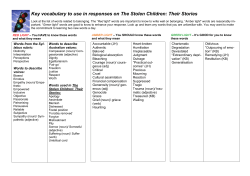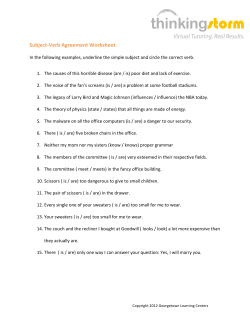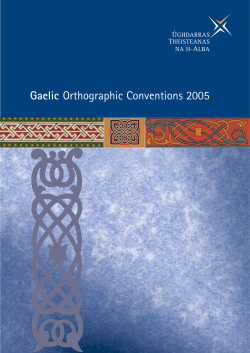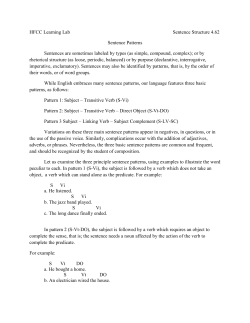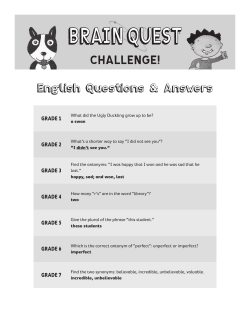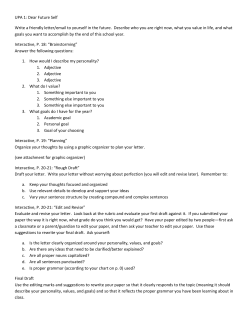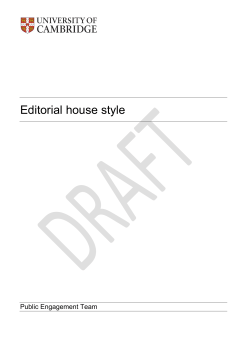
according to parts of speech. The third section lists examples... commonly used as elements in compounds. The fourth section lists...
agree with Webster’s. (Compounds formed with suffixes—e.g., nationhood, penniless —are almost always closed.) Category/specific term Examples Summary of rule 1. compounds according to category age terms a three-year-old a five-year-old child a fifty-five-year-old woman a group of eight- to ten-year-olds but seven years old eighteen years of age Hyphenated in both noun and adjective forms (except as in the last two examples); note the space after the first hyphen in the fourth example (see 7.84). The examples apply equally to ages expressed as numerals. chemical terms sodium chloride sodium chloride solution Open in both noun and adjective forms. colors emerald-green tie reddish-brown flagstone blue-green algae snow-white dress black-and-white print but his tie is emerald green the stone is reddish brown the water is blue green the clouds are snow white the truth isn’t black and white Hyphenated before but not after a noun. This departure from Chicago’s former usage serves both simplicity and logic. compass points and directions northeast southwest east-northeast a north–south street the street runs north–south Closed in noun, adjective, and adverb forms unless three directions are combined, in which case a hyphen is used after the first. When from . . . to is implied, an en dash is used (see 6.78). an a priori argument a Sturm und Drang drama in vitro fertilization a tête-à-tête approach Open unless hyphens appear in the original language. ethnic terms. See proper nouns and adjectives relating to geography or nationality in section 2. foreign phrases 375 proofs for review only _cmos16_ch7.indd 375 5/14/10 1:5 7.85 spelling, distinctive treatment of words, and compounds Category/specific term Examples Summary of rule 1. compounds according to category (continued) fractions, compounds formed with a half hour a half-hour session a quarter mile a quarter-mile run an eighth note Noun form open; adjective form hyphenated. See also numbers in this section and half in section 3. fractions, simple one-half two-thirds three-quarters one twenty-fifth one and three-quarters a two-thirds majority three-quarters done a one twenty-fifth share Hyphenated in noun, adjective, and adverb forms, except when second element is already hyphenated. See also number + noun and 9.14. number + abbreviation the 33 m distance a 2 kg weight a 3 ft. high wall Always open. See also number + noun. number + noun a hundred-meter race a 250-page book a fifty-year project a three-inch-high statuette it’s three inches high a one-and-a-half-inch hem one and a half inches a five-foot-ten quarterback five feet ten [inches tall] five- to ten-minute intervals Hyphenated before a noun, otherwise open. Note the space after the first number in the last example. See also number + abbreviation. See also 9.13. number + percentage 50 percent a 10 percent raise Both noun and adjective forms always open. number, ordinal, + noun on the third floor third-floor apartment 103rd-floor view fifth-place contestant twenty-first-row seats Adjective form hyphenated before a noun, otherwise open. See also century in section 3. number, ordinal, + superlative a second-best decision third-largest town fourth-to-last contestant he arrived fourth to last Hyphenated before a noun, otherwise open. numbers, spelled out twenty-eight three hundred nineteen forty-five five hundred fifty Twenty-one through ninety-nine hyphenated; others open. See also fractions, simple. relationships. See foster, grand, in-law, and step in section 3. 376 Compounds and Hyphenation Category/specific term Examples 7.85 Summary of rule 1. compounds according to category (continued) time at three thirty the three-thirty train a four o’clock train the 5:00 p.m. news Usually open; forms such as “three thirty,” “four twenty,” etc., are hyphenated before the noun. 2. compounds according to parts of speech adjective + noun small-state senators a high-quality alkylate a middle-class neighborhood the neighborhood is middle class Hyphenated before but not after a noun. adjective + participle tight-lipped person high-jumping grasshoppers open-ended question the question was open ended Hyphenated before but not after a noun. adverb ending in ly + participle or adjective a highly paid ragpicker a fully open society he was mildly amusing Open whether before or after a noun. adverb not ending in ly + participle or adjective a much-needed addition it was much needed a very well-read child little-understood rules a too-easy answer the best-known author the highest-ranking officer the worst-paid job a lesser-paid colleague the most efficient method a less prolific artist a more thorough exam the most skilled workers (most in number) but the most-skilled workers (most in skill) a very much needed addition Hyphenated before but not after a noun; compounds with more, most, less, least, and very usually open unless ambiguity threatens. When the adverb rather than the compound as a whole is modified by another adverb, the entire expression is open. combining forms electrocardiogram socioeconomic politico-scientific studies the practico-inert Usually closed if permanent, hyphenated if temporary. See 7.78. gerund + noun running shoes cooking class running-shoe store Noun form open; adjective form hyphenated. See also noun + gerund. noun + adjective computer-literate accountants HIV-positive men the stadium is fan friendly she is HIV positive Hyphenated before a noun; usually open after a noun. 377 7.85 spelling, distinctive treatment of words, and compounds Category/specific term Examples Summary of rule 2. compounds according to parts of speech (continued) noun + gerund decision making a decision-making body mountain climbing time-clock-punching employees a Nobel Prize–winning chemist (see 6.80) bookkeeping caregiving copyediting Noun form usually open; adjective form hyphenated before a noun. Some permanent compounds closed (see 7.78). noun + noun, single function (first noun modifies second noun) student nurse restaurant owner directory path tenure track tenure-track position home-rule governance shipbuilder gunrunner copyeditor Noun form open; adjective form hyphenated before a noun. Some permanent compounds closed (see 7.78). noun + noun, two functions (both nouns equal) nurse-practitioner philosopher-king city-state city-state governance Both noun and adjective forms always hyphenated. noun + numeral or enumerator type A a type A executive type 2 diabetes size 12 slacks a page 1 headline Both noun and adjective forms always open. noun + participle a Wagner-burdened repertoire flower-filled garden a clothes-buying grandmother a day of clothes buying Hyphenated before a noun, otherwise open. participle + noun chopped-liver pâté cutting-edge methods their approach was cutting edge Adjective form hyphenated before but not after a noun. participle + up, out, and similar adverbs dressed-up children burned-out buildings ironed-on decal we were dressed up that decal is ironed on Adjective form hyphenated before but not after a noun. Verb form always open. phrases, adjectival an over-the-counter drug a matter-of-fact reply an up-to-date solution sold over the counter her tone was matter of fact his equipment was up to date Hyphenated before a noun; usually open after a noun. 378 Compounds and Hyphenation Category/specific term Examples 7.85 Summary of rule 2. compounds according to parts of speech (continued) phrases, noun stick-in-the-mud jack-of-all-trades a flash in the pan Hyphenated or open as listed in Webster’s. If not in the dictionary, open. proper nouns and adjectives relating to geography or nationality African Americans African American president a Chinese American French Canadians South Asian Americans the Scotch Irish the North Central region Middle Eastern countries but Sino-Tibetan languages the Franco-Prussian War the US-Canada border Anglo-American cooperation Anglo-Americans Open in both noun and adjective forms, unless the first term is a prefix or unless between is implied. See also 8.38. 3. compounds formed with specific terms ache toothache stomachache Always closed. all all out all along all over an all-out effort an all-American player the book is all-encompassing but we were all in [tired] Adverbial phrases open; adjectival phrases usually hyphenated both before and after a noun. book reference book coupon book checkbook cookbook Closed or open as listed in Webster’s. If not in the dictionary, open. borne waterborne food-borne e-mail-borne mosquito-borne Closed if listed as such in Webster’s. If not in Webster’s, hyphenated; compounds retain the hyphen both before and after a noun. century the twenty-first century fourteenth-century monastery twenty-first-century history a mid-eighteenth-century poet late nineteenth-century politicians her style was nineteenth century Noun forms always open; adjectival compounds hyphenated before but not after a noun. See also old (below), mid (in section 4), and 7.83. 379 7.85 spelling, distinctive treatment of words, and compounds Category/specific term Examples Summary of rule 3. compounds formed with specific terms (continued) cross a cross section a cross-reference cross-referenced cross-grained cross-country crossbow crossover Many compounds formed with cross are in Webster’s (as those listed here). If not in Webster’s, noun, adjective, adverb, and verb forms should be open. e e-mail e-book eBay Hyphenated except with proper nouns. See also 8.163. elect president-elect vice president elect mayor-elect county assessor elect Hyphenated unless the name of the office consists of an open compound. ever ever-ready help ever-recurring problem everlasting he was ever eager Usually hyphenated before but not after a noun; some permanent compounds closed. ex ex-partner ex-marine ex–corporate executive Hyphenated, but use en dash if ex- precedes an open compound. foster foster mother foster parents a foster-family background Noun forms open; adjective forms hyphenated. free toll-free number accident-free driver the number is toll-free the driver is accident-free Compounds formed with free as second element are hyphenated both before and after a noun. full full-length mirror the mirror is full length three bags full a suitcase full Hyphenated before a noun, otherwise open. Use ful only in such permanent compounds as cupful, handful. general attorney general postmaster general lieutenants general Always open; in plural forms, general remains singular. grand, great-grand grandfather granddaughter great-grandmother great-great-grandson Grand compounds closed; great compounds hyphenated. 380 Compounds and Hyphenation Category/specific term Examples 7.85 Summary of rule 3. compounds formed with specific terms (continued) half half-asleep half-finished a half sister a half hour a half-hour session halfway halfhearted Adjective forms hyphenated before and after the noun; noun forms open. Some permanent compounds closed, whether nouns, adjectives, or adverbs. Check Webster’s. See also fractions in section 1. house schoolhouse courthouse safe house rest house Closed or open as listed in Webster’s. If not in the dictionary, open. in-law sister-in-law parents-in-law All compounds hyphenated; only the first element takes a plural form. like catlike childlike Christlike bell-like a penitentiary-like institution Closed if listed as such in Webster’s. If not in Webster’s, hyphenated; compounds retain the hyphen both before and after a noun. near in the near term a near accident a near-term proposal a near-dead language Noun forms open; adjective forms hyphenated. odd a hundred-odd manuscripts 350-odd books Always hyphenated. old a three-year-old a 105-year-old woman a decade-old union a centuries-old debate a child who is three years old the debate is centuries old Noun forms hyphenated. Adjective forms hyphenated before a noun, open after. See also age terms in section 1. on online onstage ongoing on-screen on-site Sometimes closed, sometimes hyphenated. Check Webster’s and hyphenate if term is not listed. See also 7.79. percent 5 percent a 10 percent increase Both noun and adjective forms always open. mid. See section 4. 381 7.85 spelling, distinctive treatment of words, and compounds Category/specific term Examples Summary of rule 3. compounds formed with specific terms (continued) pseudo. See section 4. quasi a quasi corporation a quasi-public corporation quasi-judicial quasiperiodic quasicrystal Noun form usually open; adjective form usually hyphenated. A handful of permanent compounds are listed in Webster’s. self self-restraint self-realization self-sustaining self-conscious the behavior is self-destructive selfless unselfconscious Both noun and adjective forms hyphenated, except where self is followed by a suffix or preceded by un. Note that unselfconscious, Chicago’s preference, is contrary to Webster’s. step stepbrother stepparent step-granddaughter step-great-granddaughter Always closed except with grand and great. style dined family-style 1920s-style dancing danced 1920s-style Chicago-style hyphenation according to Chicago style headline-style capitalization use headline style Adjective and adverb forms hyphenated; noun form usually open. vice vice-consul vice-chancellor vice president vice presidential duties vice admiral viceroy Sometimes hyphenated, sometimes open, occasionally closed. Check Webster’s and hyphenate if term is not listed. web a website a web page web-related matters Noun form open or closed, as shown; if term is not in any dictionary, opt for open. Adjective form hyphenated. See also 7.76. wide worldwide citywide Chicago-wide the canvass was university-wide Closed if listed as such in Webster’s. If not in Webster’s, hyphenated; compounds retain the hyphen both before and after a noun. 382 Compounds and Hyphenation 7.85 4. words formed with prefixes Compounds formed with prefixes are normally closed, whether they are nouns, verbs, adjectives, or adverbs. A hyphen should appear, however, (1) before a capitalized word or a numeral, such a sub-Saharan, pre-1950; (2) before a compound term, such as non-self-sustaining, pre–Vietnam War (before an open compound, an en dash is used; see 6.80); (3) to separate two i’s, two a’s, and other combinations of letters or syllables that might cause misreading, such as anti-intellectual, extra-alkaline, pro-life; (4) to separate the repeated terms in a double prefix, such as sub-subentry; (5) when a prefix or combining form stands alone, such as over- and underused, macro- and microeconomics. The spellings shown below conform largely to MerriamWebster’s Collegiate Dictionary. Compounds formed with combining forms not listed here, such as auto, tri, and para, follow the same pattern. ante antebellum, antenatal, antediluvian anti antihypertensive, antihero, but anti-inflammatory, anti-Hitlerian bi binomial, bivalent, bisexual bio bioecology, biophysical, biosociology co coequal, coauthor, coeditor, coordinate, cooperation, coworker, but co-op, co-opt counter counterclockwise, counterrevolution cyber cyberspace, cyberstore extra extramural, extrafine, but extra-administrative fold fourfold, hundredfold, but twenty-five-fold, 150-fold hyper hypertension, hyperactive, hypertext infra infrasonic, infrastructure inter interorganizational, interfaith intra intrazonal, intramural, but intra-arterial macro macroeconomics, macromolecular mega megavitamin, megamall, but mega-annoyance meta metalanguage, metaethical, but meta-analysis (not the same as metanalysis) micro microeconomics, micromethodical mid midthirties, a midcareer event, midcentury, but mid-July, the mid-1990s, the mid-twentieth century, mid-twentieth-century history mini minivan, minimarket multi multiauthor, multiconductor, but multi-institutional neo neonate, neoorthodox, Neoplatonism, neo-Nazi (neo lowercase or capital and hyphenated as in dictionary; lowercase and hyphenate if not in dictionary) non nonviolent, nonevent, nonnegotiable, but non-beer-drinking over overmagnified, overshoes, overconscientious post postdoctoral, postmodernism, posttraumatic, but post-Vietnam, post–World War II (see 6.80) pre premodern, preregistration, prewar, preempt, but pre-Columbian, Pre-Raphaelite (pre lowercase or capital as in dictionary; lowercase if term is not in dictionary) pro proindustrial, promarket, but pro-life, pro-Canadian 383 7.85 spelling, distinctive treatment of words, and compounds 4. words formed with prefixes (continued) proto protolanguage, protogalaxy, protomartyr pseudo pseudotechnocrat, pseudomodern, but pseudo-Tudor re reedit, reunify, reproposition, but re-cover, re-creation (as distinct from recover, recreation) semi semiopaque, semiconductor, but semi-invalid sub subbasement, subzero, subcutaneous super superannuated, supervirtuoso, superpowerful supra supranational, suprarenal, supraorbital, but supra-American trans transsocietal, transmembrane, transcontinental, transatlantic, but transAmerican ultra ultrasophisticated, ultraorganized, ultraevangelical un unfunded, unneutered, but un-English, un-unionized under underemployed, underrate, undercount 384
© Copyright 2025
